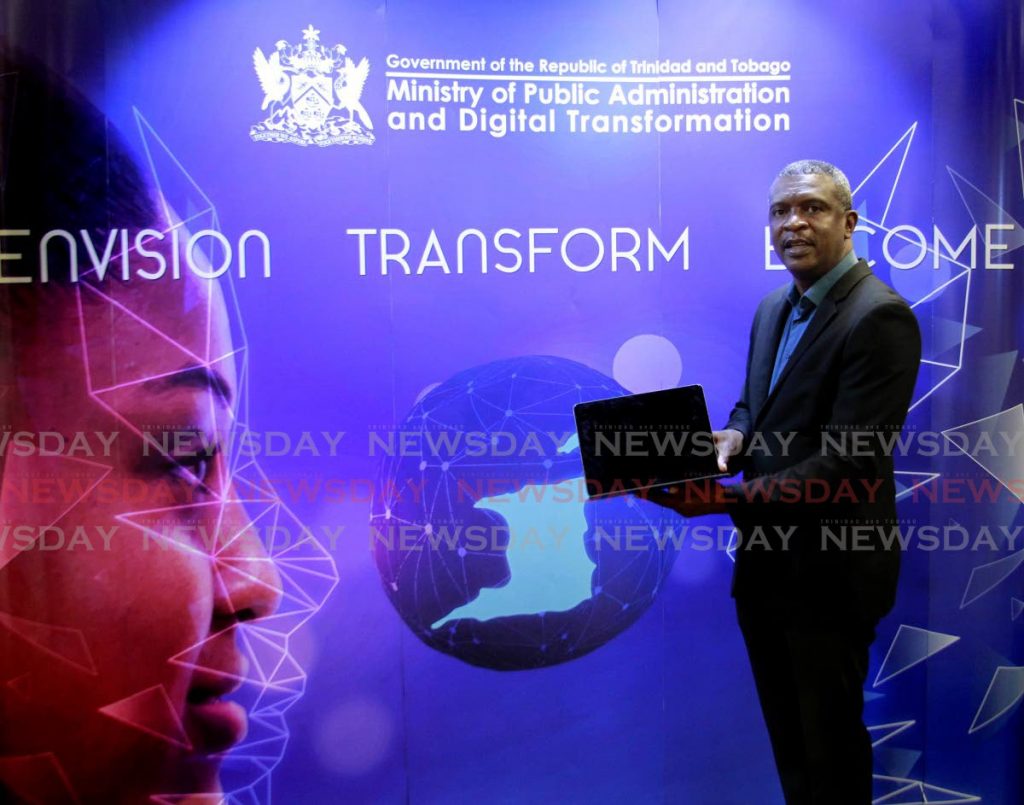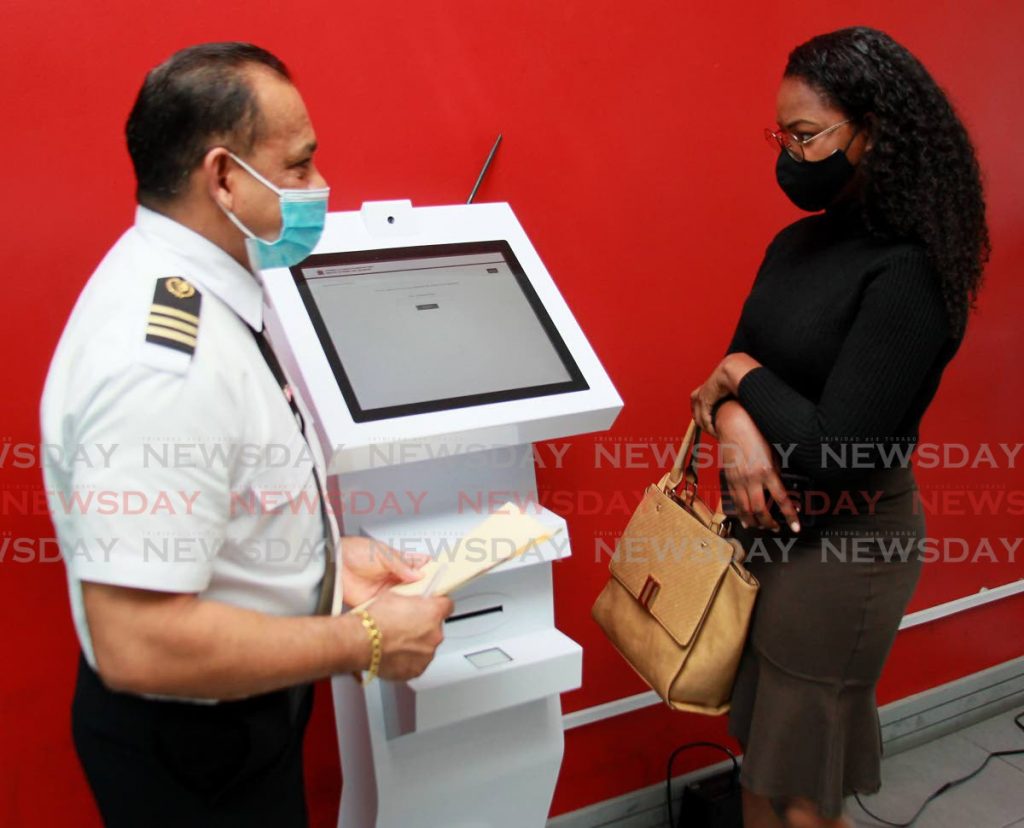Digital Transformation Minister: $281m an investment to turn Trinidad and Tobago into a digital society

The $200 million-plus allocation to the Ministry of Digital Transformation would be used to make Trinidad and Tobago globally competitive and increase its gross domestic product (GDP), line minister Hassel Bacchus has assured.
He was speaking on Tuesday in Parliament at the Standing Finance Committee on the Appropriation Financial Bill for 2022.
Bacchus said the ministry’s purpose was to facilitate development of information communication technologies (ICT) that was accessible to the population, businesses and government.
“The mandate is to facilitate the development of a digital TT one where the population has access to, and the skills to use ICT in their everyday lives, where the ICT structure is of high quality – it's robust, it's secure – where more businesses are using ICT, and to become more globally competitive, where the ICT sector is an increasing contributor to national gross domestic product (GDP).
“The government is using ICT for improved service delivery, transparency and efficiency. The ministry carries out its mandate in close partnership with other ministries, departments and agencies, the private sector and international agencies among other places,” Bacchus said.
The ministry's allocation for fiscal 2022 is $281,722,620. It was introduced in July after the Prime Minister ordered the spilt of the Ministry of Public Administration and Digital Transformation.
Bacchus, a former TSTT executive, added that with the support of other ministries and agencies, including the Telecommunications Authority of TT (TATT) and the National ICT Company of TT (iGovTT), the ministry would ensure the development of a digital society, economy and government.
“A digital society addresses the need to ensure that citizens are able to effectively access and use information communication technology; digital economy focuses on digitisation/digitalisation and private sector agencies in TT, other economic opportunities as they would arise, new and emerging technology such that our local entrepreneurs and investors can benefit; and digital government, of course will address the key areas of infrastructure operations with very specific focus on service,” he said.
Bacchus justified that the draft estimates and expenditure was necessary for infrastructure and other good, services and equipment to run effectively.
He said while the number of staff was at 31, there was no further additions to the staffing complement.
“The idea of having new digital type processes associated with the way these ministries are run, means we try to run as lean as possible, meaning that a lot of the positions that we have established would have within them different roles compared to a normal ministry.
“The idea is not to have a very large membership but having the correct people in the correct positions to be able to achieve the strategic mandate. I do not foresee significant expansion of the establishment at this time,” Bacchus explained.
Among the estimates for expenditures for the ministry were repairs and maintenance to access centres such as TTconnect, and ICT divisions, which would allow the public to utilise services, trained staff and equipment.
Bacchus said, “It is not like the original TTconnect centres. Now, you can get training there, you can access services there and you can go to use devices there, so it’s a very different model.

“The access centres will be focused in the underserved areas. So, while the TTconnect centres exist in the urban areas, the access centres will be put in the underserved areas because that is actually where the greatest need is for people to start to access digital services from a training standpoint to a utilisation standpoint.”
Draft estimates for development programme expenditure were earmarked for implementation for a digital society programme, establishment of a digital economy programme, computerisation of the ministry, among others.
Bacchus explained that the creation of digital goods and services was complex and required establishment of a digital economy, partnerships and the right environment to thrive.
“The creation of digital goods and services is a very broad-based area and it is not just in the digital society. It entails the digital economy, so, it is associated with partnership with the private sector and international organisations, partnerships with the TTSCI (TT Coalition of Services Industries) and chambers of commerce. The idea is that we are going to create the necessary ecosystem.”
In the budget presentation on October 4, Finance Minister Colm Imbert allowed incentives for the digital sector. They include a 50 per cent tax exemption for companies on the first $100,000 chargeable income in the first year, and on $200,000 in the second year.
Also, a research and development (R&D) capital allowance of up to 40 per cent of expenditure incurred by R&D firms. Imbert said the measure will cost an estimated $28.5 million and benefit 1,000 companies, to be reviewed after three years. Both measures will be implemented from January 1.


Comments
"Digital Transformation Minister: $281m an investment to turn Trinidad and Tobago into a digital society"